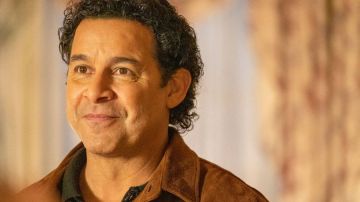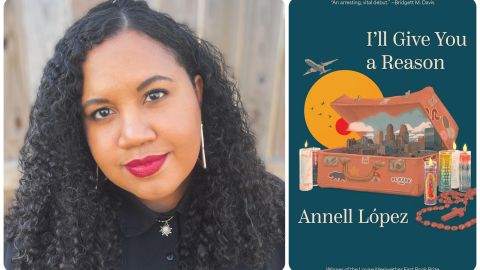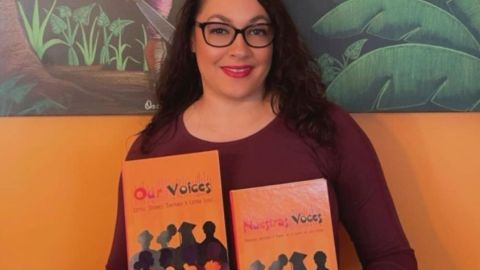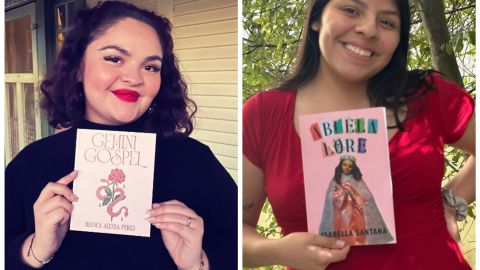How the “Miguel” Episode of ‘This Is Us’ Made Me Feel Seen
WARNING: SPOILERS AHEAD On paper I don’t have much in common with the character of Miguel Rivas (Jon Huertas) on the drama This Is Us besides being Latinx and immigrating to the U

Photo: NBC
WARNING: SPOILERS AHEAD
On paper I don’t have much in common with the character of Miguel Rivas (Jon Huertas) on the drama This Is Us besides being Latinx and immigrating to the U.S. (even though Puerto Rico is a U.S. territory). But on last night’s episode I, an Argentine immigrant, felt seen and I saw a story that we don’t often get to see on mainstream television. While Miguel has been a secondary character for the six seasons of the show, this episode placed the spotlight on his story — that of an Afro Latino struggling to assimilate and to succeed when simply getting in the room is a challenge. Miguel’s story was all of us last night and it’s a testament to authentic storytelling where the details speak volumes and sometimes a single sentence carried so much weight.
In the scene where he’s waiting to be called in for a job interview and says he’s “Mike Rivers” we’re questioning who this Mike guy is until the end of the interview. After getting the job — and confirming he speaks Spanish — he reveals to his white boss that his name is actually Miguel Rivas and that he applied with two different names with the same resume but “only Mike got a call back.” This scene speaks volumes to the reality of Latinxs and people of color who don’t even get inside the room because their name doesn’t reflect the status quo. But it was also how the show follows his success and how that creates his sense of self-worth as he struggles living in the in-between. When he goes home for the holidays and he shares with his dad that he bought a new car and offers to pay for help for his sick aunt, he’s faced with his dad’s wrath.
“The guy with his slick hair, slick car, waving money around,” his dad says adding, “no te olivdies de donde vienes.” Miguel’s impassioned response was like the rallying cry for the children of immigrants who had to adjust to a new way of life while constantly being told to never forget where they came from.
You moved us here… learn English. Fit in. What was the point? You split me in half when you moved us here and now I’m finally figuring out, and what? you want me to struggle like you? Why is it so hard for you to watch me make something of myself in this place? In this place you brought us to?
Assimilation is a constant struggle and what I appreciated is that it was presented that way versus as something to aspire to. When he brings wine to his family’s Christmas celebration only to be told that they’re drinking coquito there’s so much that isn’t said. Being first generation means we’re exposed to a new way of life but at home the old ways prevail. Assimilation is what happens outside the home but you should never forget where you came from — that’s the message. So it was also poetic to see him in his home when he’s older and reconnecting with Rebecca (Mandy Moore) and he’s not winding down with a glass of wine, it’s coquito. These tiny details reflect our own ways of trying to keep our culture alive in everyday life. For me, it’s drinking boldo tea that I buy from Mercado Buenos Aires, the same place my dad bought it from when we moved to the U.S. Even if our Spanish isn’t perfect and we’ve lost touch with the ways of life our parents tried to raise us with, we fight erasure of our roots in these small but meaningful ways.
To see that being portrayed in a mainstream show that’s as popular as This Is Us, which has millions of viewers, gave us a glimpse of what our stories could look like with the right people telling them on shows that aren’t specifically made for or by us. Huertas, who is Puerto Rican, staff writer Jonny Gomez, director Zetna Fuentes, and other Latinxs involved in the series collaborated on this episode and the authenticity shines through. Huertas told Deadline that just like Miguel, he straightened his hair to avoid getting bullied and in the show he justifies straightening it so he doesn’t look like he just arrived from San Juan. His story felt real because it was real, a fictionalized rendering of the stories of everyone involved in the making of it.
https://www.instagram.com/p/CdGMeepBgSG/
With shows like Vida, Gentefied, and One Day at a Time, I saw myself in those stories as well even though they weren’t exactly mine. With Latinx writers telling those stories there was so much there to relate to cause so much of it had been their lived experiences. But they were all short-lived, a result of our continued struggle to be represented in Hollywood. That’s why “Miguel” is so powerful and important.
The episode is littered with so many real moments, big and small, that are too many to list here but some worth mentioning include when he’s listening to the radio trying to learn English (“America, the greatest land of all”) cause entertainment is how many of us also learned and when his boss struggles to pronounce his name. One of my favorite moments is when his dad responds to Miguel purchasing a new car with “You can’t afford to not afford a roof over your head” — we’re all raised with the idea that saving our money is crucial though financial literacy is lacking. This is a conversation we’ve all had with our parents in some form.
In the start of the episode we see him as a kid accompanying his dad who is working as a gardener for a white man. He sees Roberto Clemente on TV and the homeowner is there watching and invites him to watch and proceeds to tell him he should go see a game and sit near the pit cause it’s the best place to be. Miguel responds in broken English: “Only want to see a game, no matter where to sit.” The man responds, “Son, where you sit is all that matters.”
It was a profound lesson to learn at such a young age and one portrayed both literally and figuratively. We see throughout the episode his desire to find his place, a seat at the table, and work his way up to achieve the American Dream but we also see him getting to a point where he can afford box seats to a game only to have his son reject his invitation.
Perhaps one of the most emotional scenes was when he shares how he was dedicated to caring for Rebecca as her health declines as she’s the person that felt like home when he always felt like he never belonged. We saw his journey toward finding love and acceptance and in the end, the writers take us back to what his mom taught him about love after spending almost all her life caring for her ailing sister: “Love is giving your heart without expectation.”
We see this full circle moment of a man who felt lost and finally finds his way and when his ashes are buried in both the baseball field he played at with his dad and the apple tree he planted with Rebecca, we saw this beautiful ode to a life in the in-between. As someone whose dad’s ashes are both in Argentina and California, it’s a healing moment to finally feel like your loved one can be in both places at once when they’ve lived in between both for so long. That scene was everything.
I hope this is just the beginning of more stories like this, for us and by us, because we are worthy and have so much to share.

















